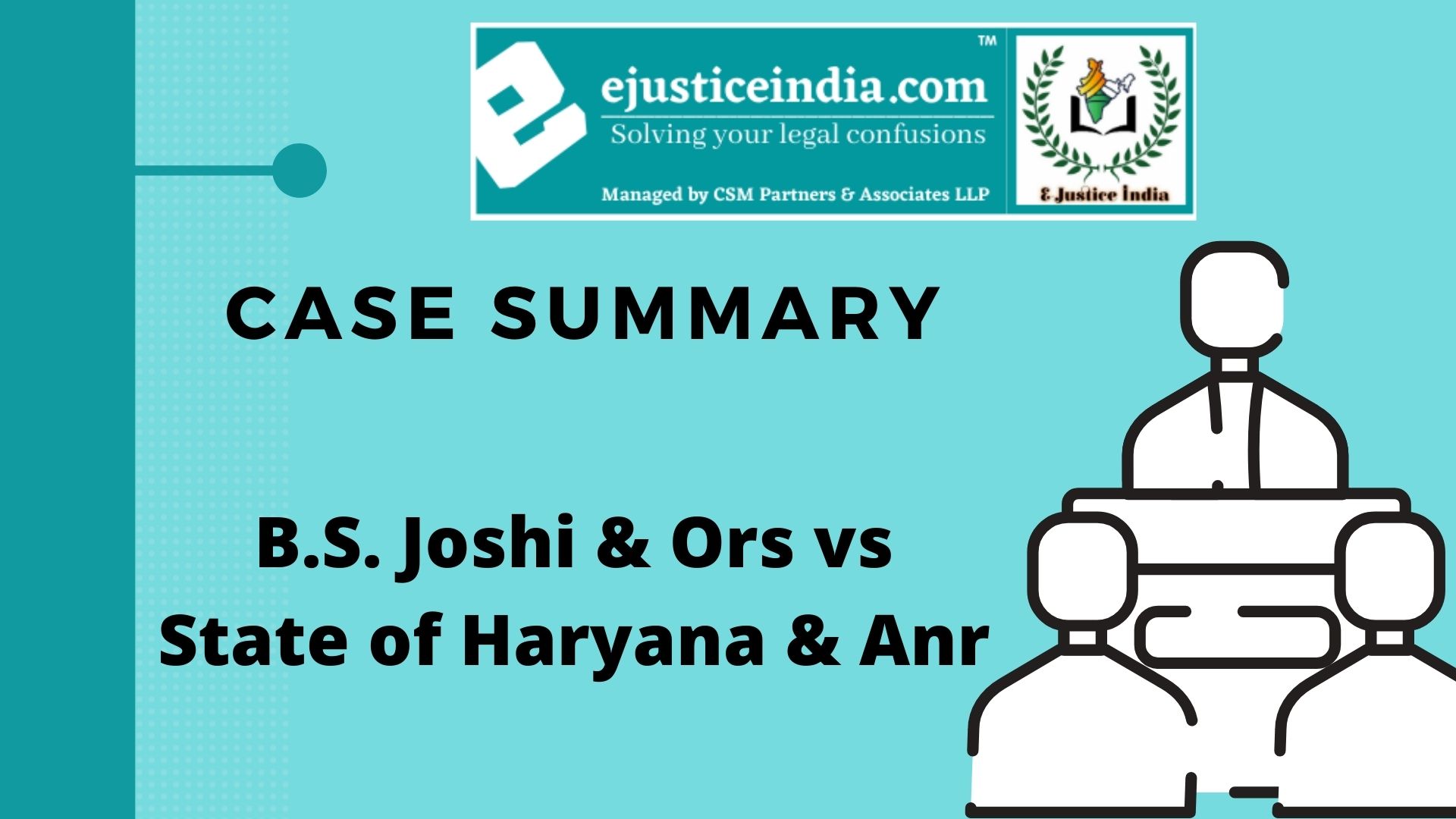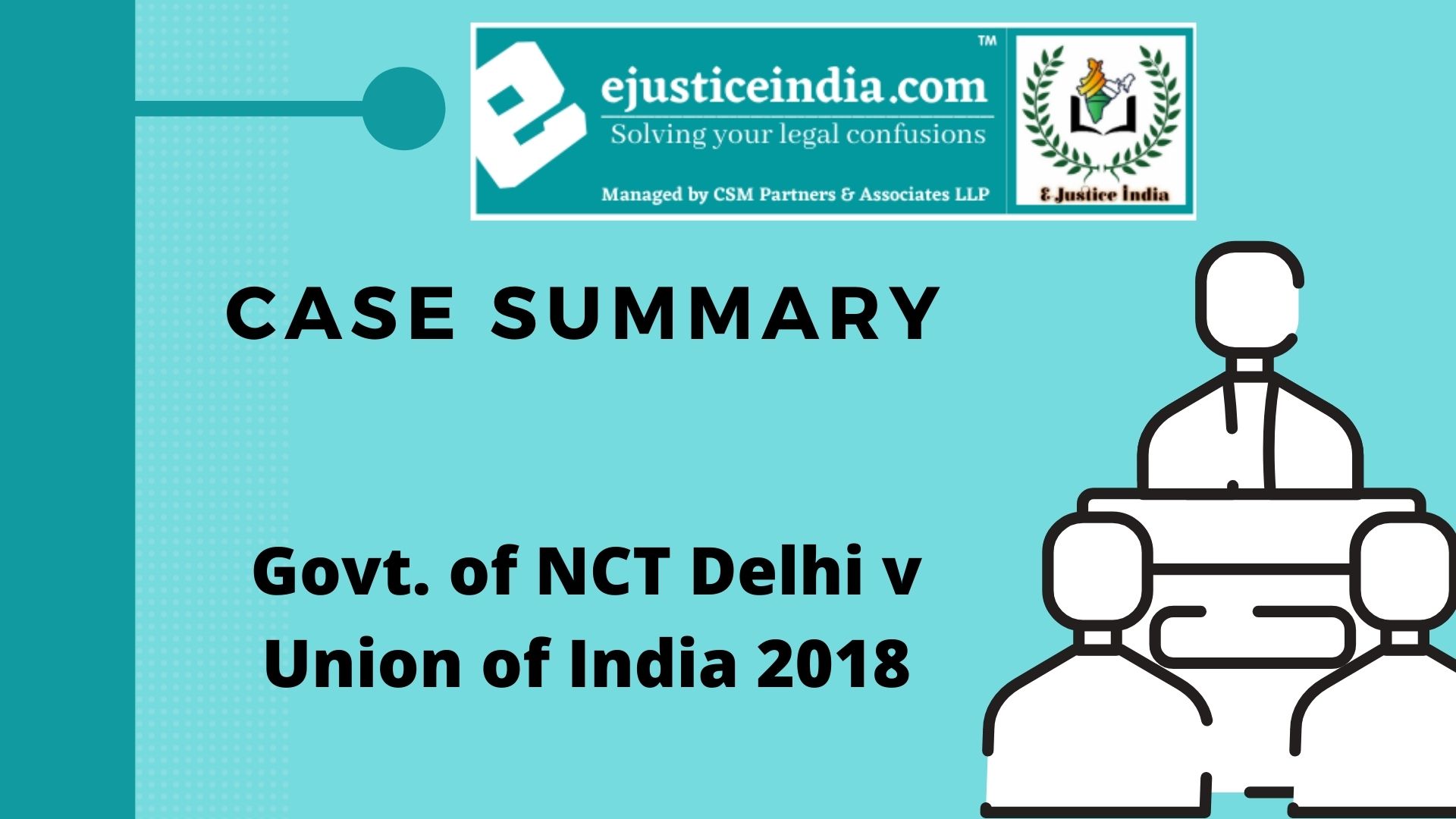Case Analysis: Hussainara Khatoon & Ors Vs. Home Secretary, State of Bihar, AIR 1979 SC 1369
Author: V Nivetha (Dr. Ambedkar Law University, School of Excellence in Law)
BACKGROUND OF THE CASE
The present case is the landmark judgement on speedy trial of cases in India which became a fundamental right of every accused person that was unnoticed so far. The case shocked the State of affiars in regard to the administration of Justice in the State of Bihar. Under Article 21 of the constitution the state is obliged to protect the personal life and liberty of the induviduals which is inclusive of the duty to speedy trial. This enlightens the government to provide free legal aid to the poor as an essential part if Article 21 of the constitution.
FACTS OF THE CASE
A writ petiton of habeas corpus was filled under Article 32 before the court for the release of under-trial prisoners in the State of Bihar. The under-trial prisoners include a large number of people which even included women and children waiting for trail for many years behind bars. This depicts the sad state of the administration of justice in Bihar. The state of Bihar was then directed to file a revised chart showing a year-wise break-up of the under-trial prisoners into two clear catagories viz. the people under trial for minor offences and for major offences.
ISSUE
- Can speedy trial be considered as a fundamental right under Article 21?
PROVISIONS
- Article 21, The Constitution of India, 1950
- Article 39A, The Constitution of India, 1950
ARGUMENTS
The counter-affidavit produced at the court claimed that a number of under-trial prisoners at the Patna central jail, Muzaffarpur central jail and the Ranchi central jail have been produced before the magistrate and been given judicial custody agin and again as needed. However, the Court found this averment unsatisfactory as it does not comply with the direction of producing the dates on which these under-trial prisoners were remanded. Further, the respondents submitted to the that usually the cases are halted because of the delay in receipt of opinions from the experts, just to justify the rising number of pending cases. The court could not accept this submission as the state can always employ more experts as per necessity.
JUDGEMENT
The court observed the above case and directed that the under-trial prisoners whose names and particulars are given in the list filed by Mrs.Hingorani should be released as their detention is exceeding the maximum period than they should be convicted for and it is illegal and also violates Article 21 of the Constitution.
The court further ordered The State Government and High Court were required to furnish particulars as to the location of the courts of magistrates and courts of sessions in the State of Bihar along with the total cases pending in each court as of 31st December, 1978. And they should also state the reason for the pendency of the cases. The court directed that on the next remand dates the under-trial prisoners should be produced before court and when that occurs the state government ought to designate a lawyer of its own cost for making the bail application, restricting remand with the aim to perform speedy trial.
ANALYSIS
In countries like Canada, United States, Europe, Japan etc the right to speedy is a fundamental right. The European convention on Human rights also gave light to the speedy trial as a fundamental right by declaring that any person detained for any offence should be entitled to trial within a reasonable period. In Rehm v. Malcolm case the court said that ‘The State cannot deny the constitutional right to a speedy trial to the accused by pleading financial or administrative inability’. Thus, speedy trial became a fundamental right in India after this writ and notched violation of Article 21.
The court was also of the opinion that the bail system in India was biased towards the poor who cannot afford a lawyer and pray the court of any kind and this drastically changed peoples life. The system that deprives any person of their right for being poor is unacceptable and it the responsibility of the government to protect it from being inevitable. Article 39A is a fundamental constitutional directive that emphasizes that free legal service is an inalienable element of ‘reasonable, fair and just’ procedure for without it a person facing economic or other disabilities wouldn’t be ready to secure justice.
CONCLUSION
After the judgement of this case almost 40,000 under-trial prisoners were released. The lawyers, scholars and even layman came to know about the wide scope of Public interest litigation and after that came a lot of PIL to protect the administration of justice.
REFERENCE
- https://main.sci.gov.in/jonew/judis/4873.pdf
- Rhem v. Malcolm, 377 F. Supp. 995 (S.D.N.Y. 1974)


